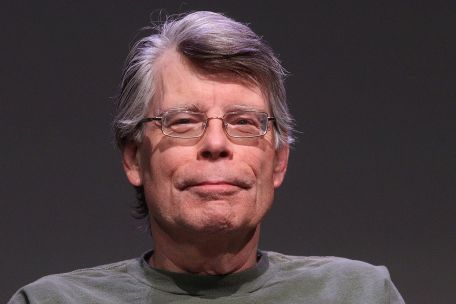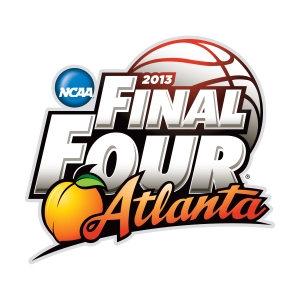 Our theme at Alum Creek for 2018 is “This is Us.” At the end of 2017, we gathered hundreds of pictures of the people who make up our church and through the website Picture Mosaics, we created this image of our stained glass windows. We had a large 3′ x 4′ canvas printed that we will display throughout the year as a vivid reminder of who we are.
Our theme at Alum Creek for 2018 is “This is Us.” At the end of 2017, we gathered hundreds of pictures of the people who make up our church and through the website Picture Mosaics, we created this image of our stained glass windows. We had a large 3′ x 4′ canvas printed that we will display throughout the year as a vivid reminder of who we are.
I love the symbolism of all of these pictures bleeding into the larger image that represents our church (the stained glass hangs in the center of our sanctuary as a focal point). We are all part of something bigger than ourselves, and this image illustrates our small role in a larger picture. In conjunction with this theme, every Sunday in 2018 our sermon focuses on a different character from the Bible: 52 different individuals highlighting the mosaic of people who make up the story of Scripture. It was difficult to narrow the studies down to only 52, but I did my best to select a group of diverse men and women from the Old and New Testaments who help highlight many diverse voices that are a part of Gods’ kingdom. With such a diverse cloud of witnesses, it is easy to find ourselves voices that are sympathetic to our own.

As I was compiling our list of studies for 2018 at the end of last year, the number of women outing male predators, offenders, and criminals had grown from a steady trickle to an outright avalanche. Accusations rained down on some of the most powerful and successful men in Hollywood and Washington sparking a movement that coalesced under the hashtag “metoo” and more recently “time’sup.” From Weinstein to Spacey and from Keillor to Franken, accusations have ranged from the inappropriate and uncomfortable to the violent, manipulative, and outright criminal.
The Bible has more stories than we’d like to admit that victimize (the Levite’s concubine in Judges 19), ignore (Bathsheba), and undermine (1 Timothy 2:11-15) the voice and standing of women. Any honest study of the people in the Bible must confront these difficult stories.
At the end of the 2017, I settled on the 52 different people we would study and matched each of the 52 names with a Sunday. It just so happens (call it the Holy Spirit; call it coincidence), our character study yesterday was Tamar. There are actually two different Tamars in the Bible, and they both are the victims of sexual crimes. As I prepared for yesterday’s sermon with Larry Nassar’s trial unfolding as a background soundtrack, I’m not sure that I’ve ever had a more timely topic. I attempted to weave the stories of the two Tamars with those of Larry Nassar and Andy Savage (a Memphis, megachurch pastor who recently was forced to deal with a skeleton from his closet.) It was not an easy message to try and orchestrate and it’s not as if a bow can be tied on a neatly wrapped up conclusion. Instead, I tried to live in the tension and get out of the way and listen to the victims that are so often ignored. The manuscript is below if you are interested in reading it.

Tamar and Tamar
January 28, 2018 (preached at Alum Creek Church)
As the idea for this year’s theme came to me back at the end of last year, I spent several days compiling a list of the characters that we would study this year in our sermons. One of the things that really drew me to this overview was that our stories would come right out of the Bible and we would cover all kinds of topics. “This is us” is the glue that holds this year together, and, like those of us in this room, God’s kingdom is a diversity of people with all with kinds of stories to tell. I came up with about 100 different people we could study, and many of them would have similar stories to tell, so as I weeded down the number to 52, I tried to provide the most diverse group of characters I could.
As we go through the year there will be a few mini-themes – for instance, during Lent we’ll consider several different people who have a story to tell from the Passion of the Christ, and we’ll study Esther on Mother’s Day and Jacob on Father’s Day, but generally speaking there was a lot of randomness as to when each particular person fell.
As sexual misconduct, abuse, and even violence against women was beginning to make major news as national figures like Bill Cosby, Matt Lauer, and Harvey Weinstein, the #metoo movement or trend began to take shape and it felt like something we should talk about. As a matter of fact, there were many stories of women in the Bible who could say #metoo. Their voices are crucial to the Bible’s story and it just so happened that one of those stories fell today. I had no idea, when I determined the dates of these studies that this week would be the week of Larry Nassar’s trial and sentencing. This couldn’t be a more timely message from the Bible, but I have to warn you, it won’t be pleasant.
This morning I am going to try to get a lot said in our time together. As I set out to really tackle this story this week, my passion and conviction grew stronger and stronger. I began with an appreciation that we had stumbled upon a relevant topic and figured many of you would be interested in listening, but I ended with a broken heart and a conviction that this message is long overdue in our church.
One of the challenges that we face in this day and age, and it seems to get more difficult as the years pass, is we have a tendency to allow the world of the media, politics, academia, and social media to determine the rules and language of our discussions. If we are honest, many of us – maybe all of us – have allowed the media and our social media circles to provide the framework by which we think through and discuss important matters. We start with the news, our favorite talk show personality, a trendy hash tag, some article we saw on Facebook, or other media outlet, then sprinkle on a Bible verse or some quasi-Christian perspective to try and justify our voice on controversial matters.
I believe that God calls us to something much more radical than that. Jesus wasn’t calling his people to separate their “personal spiritual lives” from their lives of activism and action. A faith in Jesus Christ is one that mandates an awareness and calls our voice to social concerns. How do we address trendy and timely social matters without getting sucked into the debates, the pandering, and the fickleness of it all? I believe it is through knowing the story! When we immerse ourselves fully in the biblical text, it’s amazing how relevant that we will find it to be! And we are going to see that from two stories in the Bible this morning.
Today we study the story of Tamar, but the first thing that you need to know is that there are two Tamars in the Bible and each of them have a #metoo story to tell. We are going to hear from them both this morning.
We are going to talk about the second Tamar first – just to confuse you! – she was the daughter of David and her story is told in 2 Samuel 13. The scene is set for us right out of the gate, and we can all paint the picture clearly with our mind’s eye. This is a story that is familiar to us all – it’s one that has been told way too often.
Tamar was Absalom’s sister and she was beautiful, and their brother Amnon was smitten with her. There is some ambiguity here as to whether Amnon was Tamar’s half-brother or full brother (the way the text is written, they are most often seen as half-siblings), but that gets us away from the story. Amnon was obsessed with Tamar. She was so beautiful he couldn’t think of anything else. The text says that “he was so obsessed with her he became ill.”
I want to make this very clear as we set out to study this story, Amnon is a predator. It may be his sister, but as I read the story, notice how eerily familiar the story sounds.
2 Samuel 13:1-20
At several points in this story, we see the work of a predator.
First, there was the manipulation by Amnon to make his friend feel sorry for him. “What’s your problem?” he asks. Predators, somehow, have a tendency to make themselves out to be the victims of their own poor choices. He was just hung up on this young women’s beauty? Really? There even seems to be an inherent belief here where Amnon is showing that “he can’t help himself.” How often do we hear that from predators?
Amnon displays the manipulation of language that is common in predators. He tells Jonadab that he’s in love with “Absalom’s sister” – distancing himself from her. However, when she is in his presence, he tries to appeal to her care and concern by referring to her simply as “sister.”
He invokes pity and plays off the good intentions of his sister. She has genuine concern for him, and he uses that against her. He goes through this long process of creating the perfect setting by which to take advantage of her, sending everyone out of his room and being left one-on-one with the object of his obsession.
Tamar protests. At least marry her – she pleads. There’s disagreement about whether this would have been a legitimate option anyway since they were related, but David had been known to bend the law, so who knows? She’s trying to come up with any kind of excuse or alternative she can because she is threatened and she sees where this is going. But it turns out he wasn’t sick at all, and he jumped at her and overpowered her and raped her. And then he casts her aside. For as much as he loved her, now he hated her even more. Maybe it was a guilty conscience, but mostly it was the selfish disappointment of finally taking what he wanted. While Tamar . . . we’re told that she lives as a desolate woman.
What an unsettling story. Everything about it makes me feel dirty and want to think happy thoughts to try and rid my mind from it.
In many ways it’s the story of Larry Nassar. Some sick person with a twisted view of sex and a selfish drive to use his situation to take whatever he wants and prey upon the vulnerable and well-intentioned. And just like Larry Nassar was protected at different levels by the institutions he served, Tamar receives no justice. The text goes on to say that when King David heard about what happened he was very angry . . . but we get no sense that he did anything about it. As a matter of fact . . . as the story unfolds in 2 Samuel, their brother Absalom takes revenge into his own hands and kills Amnon. Perhaps what may be the most shocking of all parts of the story, we are told that David mourned many days for his son Amnon. And while we may not expect him to rejoice over the death of his son, we are left with that lingering thought, “What about Tamar?” David was angry about the rape, but did he ever mourn for Tamar? The absence of such a sentiment speaks volumes. No further mention is made of her and we are left with the impression that she never gets over it – living in desolation – like so many victims kicked to the side of the curb and forgotten.
The other story of the other Tamar is told in Genesis 38. The circumstances surrounding that story are different, but the same. I’ll do my best to summarize this story without reading through it entirely. The story is really the story of Judah and his three sons: Er, Onan, and Sheilah and the plot revolves around the ancient practice of levirate marriage. If a husband dies before providing an heir to help care for his wife, the husband’s brother would (in a way) inherit the widow and would be responsible for providing an heir. It’s an ancient practice that is a tradition in many parts of the world, and was practiced at this time (as hard as it might be for us to wrap our heads around it).
We are told that the eldest brother, Er, married Tamar, but he did evil in the eyes of the Lord and was put to death. Thus, Onan is left to provide an heir for Tamar, but (in one of the more sexually explicit passages in the Bible) he had sex with her but released his semen on the ground, so as not to get her pregnant. He was subsequently put to death because that was evil in the sight of the Lord. (We could spend a whole lot of time trying to figure out all of this since it seems so strange to us, but we’re not going to take the time to unpack that story now).
By this point, Judah is heartbroken because he has lost his two oldest sons and only his youngest is left and he’s worried about losing him too. Therefore, Judah sends Tamar away until Sheilah is older, and he tells her they will send for her when his son is older. From the beginning of that story, we hold out very little hope that Judah actually has the intention of ever giving Sheilah to Tamar and he doesn’t.
Years later, Tamar gets word that Judah is coming to the town she has been staying, pretends to be a prostitute, and solicits Judah. Judah accepts, and as payment he promises to send her a young goat from his flock. He allowed her to keep his staff and his seal at collateral. When the goat was sent back for payment, the prostitute was nowhere to be found, and so the matter was forgotten (apparently, Judah thought he got a free night with a prostitute).
Tamar becomes pregnant and word gets around after a few months when she can no longer hide it. Judah . . . of all people . . . Judah is outraged and suggests she be put to death as an adulterer. Tamar wisely uses the staff and seal to prove that it was Judah who had had sex with her. The end of the story is one of the more dramatic in the Bible:
Genesis 38: 24-26
To fully understand this story, you have to consider the context. It is told directly before the story about Potiphar’s wife and Joseph. There is an intentional stark contrast between the actions of two of Israel’s sons – Joseph and Judah. But just as with the other Tamar story, we see again the trappings of what the whole #metoo movement is bringing to light.
If we see Larry Nassar in Amnon, I wonder if we don’t equally see Andy Savage in Judah. If you aren’t familiar with the story of Andy Savage, it broke during the first week of the year. Savage is the teaching pastor at a mega-church in Memphis, TN. During a service on January 7, he read a statement when he confessed a “sexual incident” that happened when he was the youth pastor for a church in Texas. As he was driving a 17 year old teenager home from church, he drove past her house, into a secluded wooded spot, groped her breasts, and made her perform oral sex on him. Then he told her to never tell anyone – that she needed to take it to her grave.[1]
Much like Amnon, Savage knows the manipulative power of words, and as he read his statement used many slight variations to minimize his assault.[2] He was “in college” (although he was in college, he was 23 – she was 17); “over 20 years ago” – it was 20 years almost to the day; it was a “sexual incident” – he never mentions oral sex or that he groped her breasts; he says he “resigned from ministry” – though the congregation threw him a going away party; he says he “accepted full responsibility for his actions” – though it does not appear he nor the congregation ever reported the incident to police for the crime that it was. This story highlights breakdowns in responsibility and accountability. He went on to work as a pastor of young adults at a church in Memphis and you wonder if it was ever told to them.
This story reeks of the deception and dysfunction of these two biblical accounts. As someone who has been in personal and one-on-one situations with girls my entire ministry, when I read this story it made my stomach wrench. This was too close to home. And the Nassar case has reminded us of just how powerful these positions of power can be.
This is a difficult sermon to wrap up. I don’t know how these stories hit you. You could be a man who needs to repent of the way you treat or think about women. You could be a man who has skeletons in your closet that need to be dealt with. You may be a woman who hears these stories and knows the hurt they bring more intimately than you’ve ever told anyone. You may be a woman who hasn’t had such heinous acts done to you, but you know what it’s like to feel uncomfortable and objectified.
There are lessons here for us all, and I just don’t have time to give any of them justice, so I will leave you with these.
1 – You are the loved and cherished child of God. No one can take that away from you.
2 – You have been created with dignity and filled with meaning, regardless of your gender.
3 – God desires harmony and mutual respect between all people – and calls his people to be examples.
Mostly, I just wanted to get out of the way this morning. I am far from perfect, but this is a topic that (and I am grateful to say) has not landed close to home. I empathize as much as I can, but it is impossible to fully comprehend. Towards that end, I can think of no better way to end than with the words of the very first woman who spoke out against Larry Nassar’s sexual assaults. She was the first one who bring accusations forth paving the way for over 100 others, and she was also the final victim to read a prepared statement at the trial. Her words are a perfect closing to this morning. Her name is Rachael Denhollander. The boldness and conviction it must have taken to stand face to face with this man, and to utter these words of truth and grace are beyond my ability to understand. This is what the Gospel looks like. [You can view the entirety of her remarks here. We played the excerpt below which comes around the 27:08-29:02]
In our early hearings. you brought your Bible into the courtroom and you have spoken of praying for forgiveness. And so it is on that basis that I appeal to you. If you have read the Bible you carry, you know the definition of sacrificial love portrayed is of God himself loving so sacrificially that he gave up everything to pay a penalty for the sin he did not commit. By his grace, I, too, choose to love this way.
You spoke of praying for forgiveness. But Larry, if you have read the Bible you carry, you know forgiveness does not come from doing good things, as if good deeds can erase what you have done. It comes from repentance which requires facing and acknowledging the truth about what you have done in all of its utter depravity and horror without mitigation, without excuse, without acting as if good deeds can erase what you have seen this courtroom today.
If the Bible you carry says it is better for a stone to be thrown around your neck and you throw into a lake than for you to make even one child stumble. And you have damaged hundreds.
The Bible you speak carries a final judgment where all of God’s wrath and eternal terror is poured out on men like you. Should you ever reach the point of truly facing what you have done, the guilt will be crushing. And that is what makes the gospel of Christ so sweet. Because it extends grace and hope and mercy where none should be found. And it will be there for you.
I pray you experience the soul crushing weight of guilt so you may someday experience true repentance and true forgiveness from God, which you need far more than forgiveness from me — though I extend that to you as well.
[1] Her story originally appeared here: http://thewartburgwatch.com/2018/01/05/i-thought-he-was-taking-me-for-ice-cream-one-womans-metoo-story-of-molestation-by-her-former-youth-pastor-andy-savage/
[2] Full service was broadcast here: https://www.youtube.com/watch?v=wyKdluNR95I









 Recently I received the new book
Recently I received the new book 






